Recorded history of the LGBT community in Seattle begins with the Washington Sodomy Law of 1893. In the 1920s and 1930s there were several establishments in Seattle which were open to homosexuals. The Double Header, opened in 1934, may have been the oldest continuously operating gay bar in the United States until it closed in December 2015. On 19 November 1958, an injunction instructed the city police not to question customers of gay bars unless there was a "good cause" in connection with an actual investigation. In the 1960s, Seattle came to be seen as providing an accepting environment, and an increasing number of gay and lesbians were drawn to the city. In 1967 University of Washington's Professor Nick Heer founded the Dorian Society, the first group in Seattle to support gay rights.
Seattle's LGBT community is the second largest in the United States after San Francisco with 12.9% of the city identifying as LGBT. The Capitol Hill neighborhood in particular is considered by many the "center of gay life" in Seattle, with gay-friendly businesses and nightlife, and a resource center.
The Washington Sodomy Law was adopted in 1893, and in the same year, a King County court sentenced Charles Wesley to seven years at hard labor for "intent to know" Eddie Kalberg, "a male person". [1]
In the 1920s and 1930s, early establishments open to homosexuals were concentrated in areas of ill repute. Pioneer Square, also known as "Skid Road" or "Fairyville," with its bars, clubs, and cabarets probably was the center of early public gay life in Seattle. The Casino, opened in 1930 on the corner of Washington Street and 2nd Avenue, was known as "the only place on the West Coast that was open and free for gay people", and where same-sex dancing was allowed. The Double Header above The Casino, opened in 1934, was possibly the oldest continuously operating gay bar in the United States until it closed at the end of December 2015. The Spinning Wheel on Union Street and 2nd Avenue, was a cabaret featuring female impersonators. Both were open to both gay and straight clientele during the 1930s. The Greyhound bus depot, Volunteer Park on Capitol Hill, and the restrooms in the University Plaza Hotel and at the University of Washington were also known as meeting spots for gay men. [2]
The Garden of Allah was the most popular homosexual Seattle cabaret in the 1940s and 1950s. Regular vaudeville and drag shows were held there with singers dressed in drag. It was a hotspot in the post war period with service-persons, but in the 1960s the military made most gay establishments in Seattle off-limits. In the 1960s and 1970s new gay Seattle hotspots such as the Mocambo, [3] the Golden Horseshoe and the Golden Crown opened. In the 1970s vaudeville had changed and Seattle began the trend of courts, public drag clubs "with 'emperors' and 'empresses' where "lip –synching would remove the need for singing talent and open the way to any man who could dance, quip, or even just costume. Performances would change, with ever-more flamboyant costuming, more energetic and choreographed dancing and even laser shows." [4]
In the 1950s and 1960s, Seattle's dance clubs served as important points for the gay community to meet and strategize, which according to Gary Atkins, author of Gay Seattle. Stories of Exile and Belonging, may be likened to the African-Americans who used churches to organize during the civil rights movement.
During the 1950s, when anti-sodomy laws were still in effect in the United States, gay bars, clubs and bathhouses became scrutinized. Owners of such establishments would frequently bribe law enforcement to ensure their survival as well as prevent harassment of their mostly gay clientele and escape legal consequences themselves. Seattle city officials believed that the city was not doing enough to enforce laws discriminating against homosexuality and feared that eventually it would be as openly acceptable as in cities such as San Francisco. As a result of the political upheaval regarding Seattle gay bars, the Armed Forces Disciplinary Control Board sent fourteen gay establishments letters threatening to bar them from military personnel. In 1966, the Seattle police chief suggested restrictions on gay bars such as withholding their liquor licenses.
In 1965 a group of openly gay men were contacted by Rev. Mineo Katagiri to talk with religious leaders in the city. The first radio interview with openly gay men was broadcast on KRAB radio by members of that group. The Dorian Society was formed in 1967. The book Gay Seattle goes into detail about this group.
The Dorian Society founded in 1967 by Nick Heer, a professor at the University of Washington was the first group in Seattle to support gay rights and which published a newsletter about current issues and events in the gay community. The name was a reference to the Doric Hellenic warriors of Ancient Greece who considered homosexuality glamorous and the society was modelled on New Zealand's Dorian Society. Their mission was to create a more respectable image of the Seattle homosexual. They also wanted the reform the Seattle sodomy laws. In response to their efforts a Seattle Times headline stated on September 21, 1966, Tolerant Reputation: Seattle homosexual problem reported to be 'out of hand.' This article stated the Seattle police wanted to suppress the LBGT community, partially by removing liquor licenses at gay bars. In May 1967 The Daily of the University of Washington did a series on the gay community, which for the first time represented the community in a more positive light. Much of this positivity had to with the vigilant PR and work of the Dorian Society.
On September 20, 1971, John Singer, later known as Faygele ben Miriam, and fellow activist Paul Barwick applied for a marriage license at the King County Administration Building in Seattle, [5] not being keen on actually getting married but wanting "to make a point about having the same rights as heterosexuals." [6] Their request was refused by then-county auditor (later County Assessor) Lloyd Hara. They were among the first same-sex couples in the United States to apply for a marriage license, causing a flurry of media coverage and leading to a lawsuit, [7] Singer v. Hara, which ended in 1974 with a unanimous rejection by the Washington State Court of Appeals. [8]
From June 24 to June 30, 1974, Seattle's lesbians and gays celebrated the city's first Gay Pride Week. It was the first event in the region in which the gay community as a whole came out of its collective closet. On June 28, 1974, the Gay Community Center at 1726 16th Avenue E held a grand opening. On June 29, 1974, a Saturday, the Seattle Post-Intelligencer reported that about 200 attended a picnic at Occidental Park in Pioneer Square. Entertainment included music and a "Gayrilla theater." Banners from the stage read "Proud to be lesbian, Proud to be gay." In the afternoon, activities moved to Volunteer Park and included roller-skating and a sing along at the top of the Volunteer Park Water Tower. That evening, a street dance was held in Occidental Park that featured music by Blue Moon and Sue Isaacs. On June 30, 1974, Gay Pride Week concluded with a "Gay-In" at the Seattle Center that featured "zany dress, general frivolity, carousing and a circle dance around the main International fountain."
In 1995, A new transgender rights organization called The T People created the first Transgender Pride party and demonstration in Seattle. Slogan: "MAXIMUM FUN & MAXIMUM FREEDOM for people of all genders or no gender at all." Individual volunteers secured permits, assembled local Trans political speakers and performers of music, poetry, and standup comedy. The MC, wearing a black fishnet bare midriff top and leather motorcycle jacket ripped the current edition of alternative newspaper The Stranger in half, deriding the cover story which provocatively asked if the Queer identity had, with social improvement, become obsolete. The gathering of about 200 people took place on a rainy June day across the street from Seattle Central Community College on Broadway, atop the Capitol Hill neighborhood. This event distinguished itself with an explicit anti-capitalist, anti-imperialist, and eco-feminist political call to action. An accompanying essay titled "Shades of Gray & Sunlight" ran in the official Pride guide.
Since 2011, Seattle Gay Pride Parade and Festival has drawn more than 350,000 people annually. [9]
Today, sodomy laws have been repealed by the Supreme Court, and Seattle has generally become more affirming of LGBT people. More recently, gay bars and clubs have enjoyed a central prominence for community organizing. In 1987 Life Long AIDS Alliance created the "Jars in Bars" program that allows community volunteers to engage in education outreach regarding AIDS and enables patrons of Capitol Hill bars to donate to their cause. The Seattle mayor and other city officials have become more receptive to the gay community.
Despite the general atmosphere of tolerance towards the LGBT community in Seattle, there have been instances of homophobic hate crimes, particularly in Capitol Hill and in open public spaces such as Volunteer Park. In one case, in January 2009, eleven gay bars and clubs in Seattle were sent letters threatening ricin attacks. [10]
In the later 1990s and early 2000s media announced a dangerous sense of malaise and complacency in the gay community generally over safe-sex practices. AIDS was becoming more "normalized", risky sexual practices were increasing and gonorrhea, syphilis and chlamydia cases all rose. A combination of effectiveness in anti-retroviral therapies and increase in use of intravenous drugs influenced a rise in sexually transmitted infections (STI). In early 1999, King County Public Health reported an "alarming" increase in sexually transmitted infections amongst men who have sex with men. The "watershed moment" occurred in 2003 when King County Public Health released a report saying that STI had increased in gay/bisexual men by 40% over the past year.
In an article, Michael Brown notes that the geography is intertwined with politics. Seattle's sexual playgrounds were all geographically concentrated and were open at times that other establishments weren't. Seattle's preventative efforts may also have been part of the issue. [11]
In the beginning there was a lot of denial that Seattle would get hit by the AIDS virus but the community quickly organized and many activist say now that Seattle's gay community has one of the strongest HIV/AIDS networks.
The first person to publicly be diagnosed with AIDS in Seattle was James Flanigan. This diagnosis became somewhat of a wake up call for the rest of the gay community. In October 1983 men were writing the Seattle Gay News telling the community to wake up and start to protect themselves. Seattle's ACT UP chapter also started organizing protests and doing work to get funding for AIDS care and research. In 1983 and 1984 the Chicken Soup Brigade (today part of the Life Long AIDS Alliance) was created by Josh Joshua. Chicken Soup became the backbone of the gay community with groups of volunteers cooking and caring for those who were ill with HIV.
Seattle's most major HIV focused organization is likely Life Long AIDS Alliance . Life Long organizes services for people living with AIDS and is simultaneously active in the LGBT community by holding support groups and awareness events such as Gay Bingo. Shanti/Seattle was created to train volunteers to understand the emotional stages of HIV/AIDS. Another key organization is the Dunshee House which was originally born from Seattle's first gay awareness group, the Dorian Society. Dunshee House organizes all levels and types of support groups for HIV seropositive people. Also, Bailey Boushay house is an AIDS hospice care center run through Virginia Mason Hospital.

Capitol Hill is a densely populated residential district in Seattle, Washington, United States. It is immediately east of Downtown Seattle and north of First Hill. The neighborhood is one of the city's most popular nightlife and entertainment districts and is home to a historic gay village and vibrant counterculture community.

Lesbian, gay, bisexual, and transgender (LGBT) people in Belarus face legal challenges not experienced by non-LGBT residents. Although same-sex sexual activity is legal in Belarus, gay and lesbian rights in the country are otherwise severely limited and homosexuality remains highly stigmatized in Belarusian society. Households headed by same-sex couples are not eligible for the same legal protections available to opposite-sex couples. Belarus provides no anti-discrimination protections for LGBT people, nor does it prohibit hate crimes based on sexual orientation and gender identity. Many Belarusian people believe that homosexuality is a psychiatric illness, and many LGBT persons in Belarus tend to hide their sexual orientation in public. Those who are "out" face harassment, violence and physical abuse.

Lesbian, gay, bisexual, and transgender (LGBTQ) people in the Islamic Emirate of Afghanistan face severe challenges not experienced by non-LGBT residents. Afghan members of the LGBT community are forced to keep their gender identity and sexual orientation secret, in fear of violence and the death penalty. The religious nature of the country has limited any opportunity for public discussion, with any mention of homosexuality and related terms deemed taboo.

Lesbian, gay, bisexual, and transgender (LGBTQ) people in Jamaica face legal and social issues not experienced by heterosexual and gender-conforming people. Consensual sexual intercourse between same-sex partners is legally punishable by up to 10 years of imprisonment in the country.
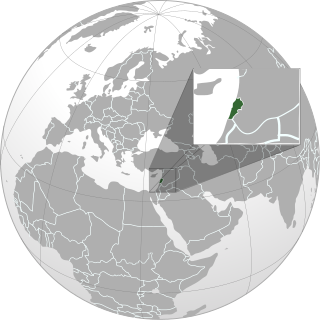
Lesbian, gay, bisexual, and transgender (LGBT) people living in Lebanon face discrimination and legal difficulties not experienced by non-LGBT residents. Various courts have ruled that Article 534 of the Lebanese Penal Code, which prohibits having sexual relations that "contradict the laws of nature", should not be used to arrest LGBT people. Nonetheless, the law is still being used to harass and persecute LGBT people through occasional police arrests, in which detainees are sometimes subject to intrusive physical examinations.
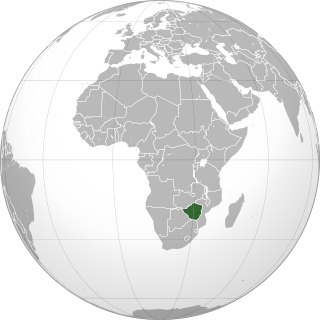
Lesbian, gay, bisexual, and transgender (LGBT) people in Zimbabwe face legal challenges not experienced by non-LGBTQ residents. Since 1995, the Government of Zimbabwe has carried out campaigns against LGBT rights. Sodomy is classified as unlawful sexual conduct and defined in the Criminal Code as either anal sexual intercourse or any "indecent act" between consenting adults. Since 1995, the government has carried out campaigns against both homosexual men and women.
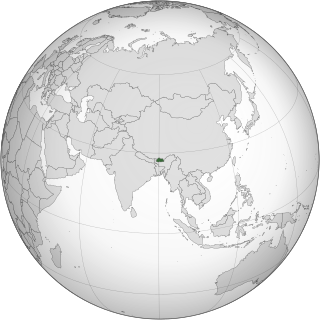
Lesbian, gay, bisexual and transgender (LGBT) people in Bhutan face legal challenges that are not faced by non-LGBTQ people. Bhutan does not provide any anti-discrimination laws for LGBT people, and same-sex unions are not recognised. However, same-sex sexual activity was decriminalised in Bhutan on 17 February 2021.

Lesbian, gay, bisexual, and transgender (LGBT) people in Myanmar face legal and social challenges not experienced by non-LGBT residents. Same-sex sexual activity is illegal and section 377 of Myanmar's Penal Code 1861, enacted in 1886, subjects same-sex sexual acts to a term of imprisonment of up to 20 years in prison. Heterosexual anal intercourse and oral sex are also illegal. Transgender people are subject to police harassment and sexual assault, and their gender identity is not recognised by the state. During the country's long military dictatorship under the authoritarian State Peace and Development Council between 1988 and 2011, it was difficult to obtain accurate information about the legal or social status of LGBT Burmese citizens. Following the 2011–2015 Myanmar political reforms, improvements in media and civil freedoms have allowed LGBTQ people to gain more visibility and support in the country. Despite the 2015 electoral victory of the National League for Democracy, which promised improved human rights and whose leader Aung San Suu Kyi had once called for the decriminalisation of homosexuality, there have been no changes to anti-LGBT laws. Nevertheless, LGBT activists have noted a growing climate of societal acceptance and tolerance toward LGBT people, in line with worldwide trends.
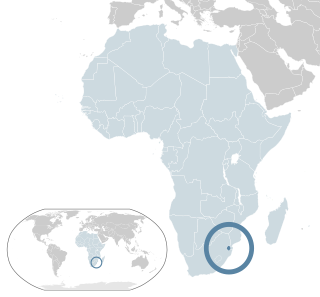
Lesbian, gay, bisexual, and transgender (LGBT) people in Eswatini have limited legal rights. According to Rock of Hope, a Swati LGBT advocacy group, "there is no legislation recognising LGBTIs or protecting the right to a non-heterosexual orientation and gender identity and as a result [LGBT people] cannot be open about their orientation or gender identity for fear of rejection and discrimination." Homosexuality is illegal in Eswatini, though this law is in practice unenforced. According to the 2021 Human Rights Practices Report from the US Department of State, "there has never been an arrest or prosecution for consensual same-sex conduct."
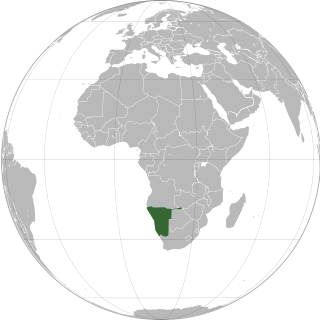
Lesbian, gay, bisexual, and transgender (LGBT) rights in Namibia have expanded in the 21st century, although LGBT people still have limited legal protections. Namibia's colonial-era laws criminalising male homosexuality were historically unenforced, and were overturned by the country's High Court in 2024.

New York state, a state in the northeastern United States, has one of the largest and the most prominent LGBTQ populations in the world. Brian Silverman, the author of Frommer's New York City from $90 a Day, wrote that New York City has "one of the world's largest, loudest, and most powerful" LGBT communities", and "Gay and lesbian culture is as much a part of New York's basic identity as yellow cabs, high-rises, and Broadway theatre". LGBT travel guide Queer in the World states, "The fabulosity of Gay New York is unrivaled on Earth, and queer culture seeps into every corner of its five boroughs". LGBT Americans in New York City constitute by significant margins the largest self-identifying lesbian, gay, bisexual, and transgender communities in the United States, and the 1969 Stonewall riots in Greenwich Village are widely considered to be the genesis of the modern gay rights movement.
LGBT history in Kenya has been characterized by religious and colonial influences. Interactions with traders along the Indian Oceanic coastline introduced Islamic religious doctrine against homosexuality. European explorers and British colonial rule incorporated the influence of Christianity. After gaining independence in 1963, the Kenyan government has remained hostile to the LGBT community. But in the 21st century, LGBT organizations advocacy organizations have formed.

Lesbian, gay bisexual and transgender (LGBT) history in Belgium has evolved through the centuries. According to LGBT scholars Bart Eeckhout and David Paternotte, Belgium, considered a conservative nation, developed into one of the world's most progressive and LGBT-friendly states. From the 16th century, Roman Catholic values influenced attitudes towards LGBT rights. Homosexuality and sodomy was criminalised and punished in Belgium, with gay men being put under conversion therapy by medical doctors and psychiatrists. Homosexuality was decriminalised in the 18th century, but sodomy still remained punishable until the 19th century. However, from the 21st century, Belgium developed into a more LGBT friendly state; Belgium's anti-discrimination law ensures that discrimination based on sexual orientation is illegal and introduces new transgender legal rights. Belgium is the second country, after the Netherlands, to open civil marriage to same-sex couples in 2003, and granted same-sex couples the right to adopt in 2006. And continues to provide asylum for individuals who may be persecuted for their sexual and gender identity. Belgium has also implemented new education policies to combat school discrimination against LGBT peoples and has allowed IVF and artificial insemination to be available for same-sex couples. Belgium has also supported LGBT politicians and expression of LGBT values through art.

The development of LGBT culture in Philadelphia can be traced back to the early 20th century. It exists in current times as a dynamic, diverse, and philanthropically active culture with establishments and events held to promote LGBT culture and rights in Philadelphia and beyond.
The LGBTQ community in Chicago is one of the United States' most prominent, especially within the Midwest, alongside those of San Francisco and New York City, and holds a significant role in the progression of gay rights in the country. With a population of around 3 million, Chicago is the third biggest city in the US, and around 150,000 of those people identify as lesbian, bisexual, gay, transgender, questioning, or other.
This is a timeline of notable events in the history of non-heterosexual conforming people of Asian and Pacific Islander ancestry, who may identify as LGBTIQGNC, men who have sex with men, or related culturally-specific identities. This timeline includes events both in Asia and the Pacific Islands and in the global Asian and Pacific Islander diaspora, as the histories are very deeply linked. Please note: this is a very incomplete timeline, notably lacking LGBTQ-specific items from the 1800s to 1970s, and should not be used as a research resource until additional material is added.
Austin, Texas, has one of the most prominent and active LGBT populations in the United States. Austin was acclaimed by The Advocate in 2012 as part of its Gayest Cities in America, and was recognized by Travel and Leisure as one of America's Best Cities for Gay Travel. Much of Austin's gay nightlife scene is clustered around 4th Street. LGBT activism groups Atticus Circle and Equality Texas are headquartered in Austin.

The Rainbow Project (TRP) was a non-governmental organisation advocating for LGBT rights and acceptance in Namibia. It provided resources to marginalised communities and worked to counter homophobia and discrimination against sexual minorities in the Namibian community. At its inception, TRP was the only organisation of its kind to focus on injustice against and abuse of sexual minorities in the country; this contrasted with other prominent Namibian LGBT organisations, such as Sister Namibia, which primarily supported lesbians.

The following is a timeline of lesbian, gay, bisexual, and transgender (LGBT) history in the 20th century.

In Washington, D.C., LGBT culture is heavily influenced by the U.S. federal government and the many nonprofit organizations headquartered in the city.